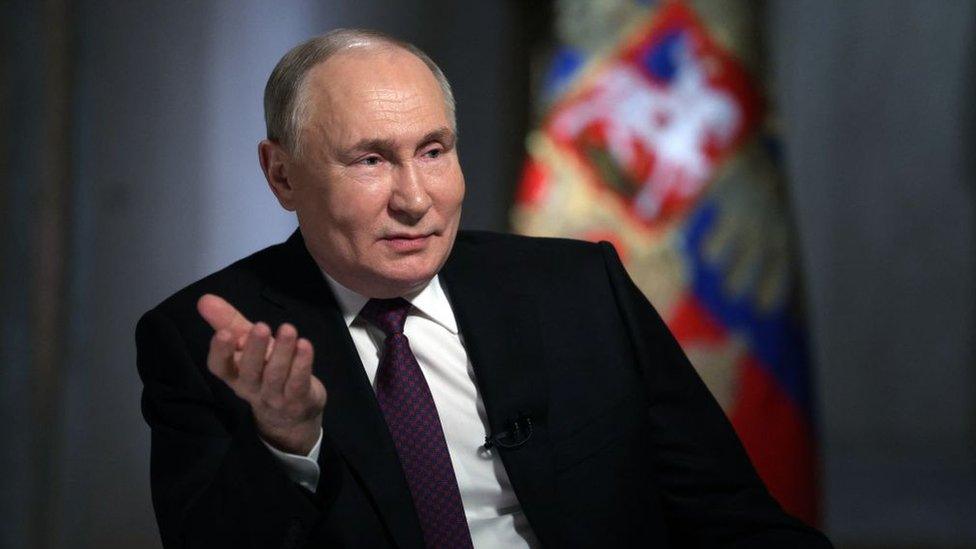Russia protests: Putin opponents march in Moscow
- Published
Activist Anatoly Katz says he is secretly filming the protest to get his own crowd count
Thousands of Russian anti-government protesters have taken part in a major rally in Moscow to demand fresh elections and a new president.
The protest, on a national holiday, came a day after police raided the homes of several prominent activists.
One of them, Sergei Udaltsov, defied an order to report for questioning, and instead addressed the crowd.
Last week, President Vladimir Putin approved legislation increasing fines for those who violate protest laws.
Mr Putin won a third presidential term in March amid protests over alleged fraud in December's parliamentary vote.
This is the first big anti-government rally in Russia since Mr Putin returned to the Kremlin, says the BBC's Steve Rosenberg in Moscow.
Tens of thousands of protesters, a sea of flags, banners and placards flowed through the centre of Moscow, he says.
The demonstrators chanted "Putin is a thief" and "Russia without Putin".
"It's obvious they are as frightened of us as they are of fire," opposition leader Boris Nemtsov told the rally. "They are scared of the people's protest."
Mr Putin has vowed not to let Russia be weakened by "social shocks".
"We cannot accept anything that weakens our country or divides society," he said in televised remarks.
Addressing the crowd earlier, Sergei Udaltsov called for continuous street demonstrations, beyond Tuesday's March of Millions.
He dismissed the police order for him to report to them, saying: "The investigators will wait, I've made my choice".
Mr Putin appears to be taking a harder line against the opposition, correspondents say.
Shortly before the rally, independent media websites went down.
The BBC could not access the Moscow Echo radio website, and other news agencies reported difficulty reaching that of the Novaya Gazeta newspaper.
Mikhail Zygar, editor-in-chief of the Dozhd (Rain) TV channel, said its website had come under attack by hackers.
"We're trying to get back on track. The attack started at 11:00 [07:00 GMT]," he told the Interfax news agency.
'Repression'
Those targeted by police on Monday included leading opposition activists Alexei Navalny, Sergei Udaltsov and his wife Anastasia.
Mr Navalny and Anastasia Udaltsov arrived for questioning at the headquarters of the Russian investigative committee on Tuesday morning.
It is a rather unsubtle attempt by the authorities to stop them from participating in the protest, our correspondent says.
Police also searched the home of Ksenia Sobchak - a well-known TV presenter and daughter of Mr Putin's late mentor and St Petersburg mayor Anatoly Sobchak - who has joined the protest movement.
"People barged in at 8am, gave me no chance to get dressed, robbed the apartment, humiliated me," Ms Sobchak said in a Twitter post.
"I never thought we would return to such repression in this country."
Mr Udaltsov told reporters that police had "rifled through everything, every wardrobe, in the toilet, in the refrigerator. They searched under the beds".
Summoned
Mr Navalny said police seized computer disks containing photos of his children, along with clothes including a sweatshirt bearing an opposition slogan.
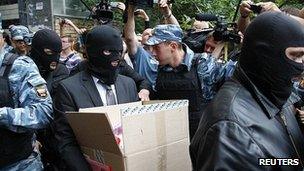
Security officials carried boxes of items away from the home of opposition activist Alexei Navalny
Federal investigators have summoned the opposition leaders to appear for questioning just one hour before the scheduled start of the rally.
Following the raids, US State Department spokeswoman Victoria Nuland said, external Washington was "deeply concerned by the apparent harassment of Russian political opposition figures on the eve of the planned demonstrations on June 12".
"Taken together, these measures raise serious questions about the arbitrary use of law enforcement to stifle free speech and free assembly," she said.
The searches also triggered a wave of protest from Russian bloggers, who compared the actions to those of Stalin's secret police in the 1930s.
Artyom Liss of BBC Russian said the raids may draw new supporters to the anti-Putin cause.
- Published12 June 2012
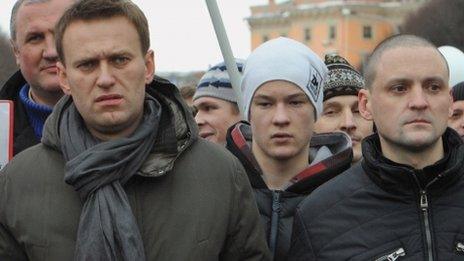
- Published11 June 2012
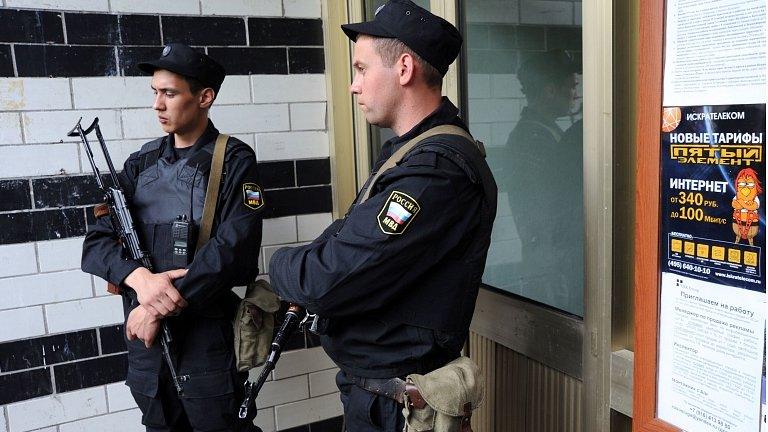
- Published6 June 2012
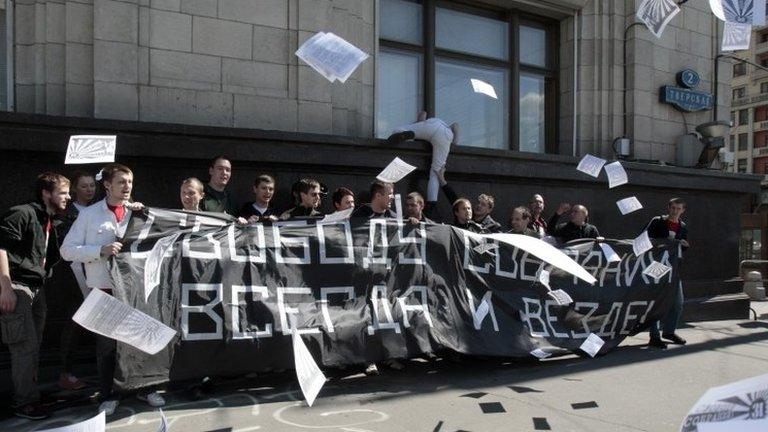
- Published17 March 2024
